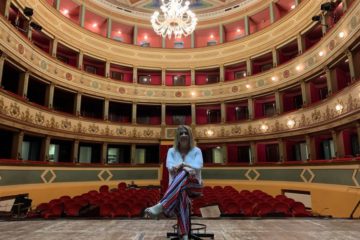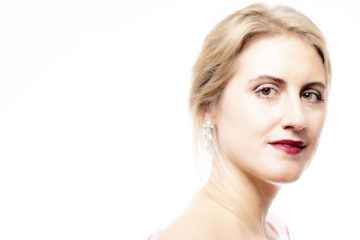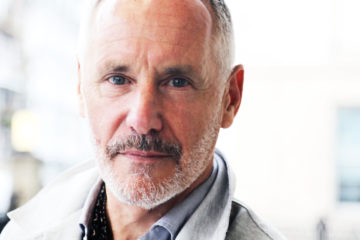Soprano Meryl Dominguez may still be young, but her talent is already turning heads and gaining critical and popular approbation. In a recent concert with The Dallas Opera, The Dallas Morning News praised her “fabulous singing”, saying that they’d be “thrilled to hear” her on any stage. Her star turn in the title role of Lucia di Lammermoor was just named one of the most memorable classical music performances of the year. Beyond an impressive voice and compelling stage presence, Dominguez offers a fresh perspective on opera as an art form, a business and a lifestyle. She shares her insights with Opera Sense in a new interview.
Can you elaborate a bit on your Hart Institute experience at The Dallas Opera and what it means to you as an up-and-coming female artist?
That was so lovely to read! I had a wonderful time in Dallas, and the Hart Institute was so reinvigorating to witness. All of the conductors were phenomenal, and it was so informational for the singers too. We usually never get to see conductors being anything but confident and decisive, and to see them in the rehearsal room at The Dallas Opera, working through how to communicate with the orchestra gave the singers permission to also experiment and be bold.
Being bold is the hardest part of being a female musician. Too often we artists (especially singers, as the face of opera) apologize for taking up space, speaking our minds, and lacking in some imaginary way. Dallas Opera and the Hart institute are really giving a lot to the field by emboldening these amazing women, conductors and administrators alike, and I keep reminding myself to practice the lessons I learned there. Being a female musician means that I have a voice to be bold!
How do you feel AVA has prepared you for the life of an opera singer?
It’s a really special place, and in some ways is the closest thing to an American ‘Fest’ contract. I was unbelievably lucky to get my training there and with it, to be able to perform 8 new major roles in 4 years, as well as tons of recital and concert performances. Most people who are called to be singers consider themselves creatives and sensitive, but AVA won’t let you get away with being delicate, it really toughens people up. You need a thick skin to be a singer, and AVA genuinely gives you all the tools to work hard and be thoughtful and purposeful in the way you make art.
How do you go about putting together a recital? Is there any specific theme you and Parker Ramsay are exploring in your upcoming performance?
Usually a recital starts with just talking about music we love, and before you know it, pieces start fitting together. Parker and I were hanging out at my apartment drinking wine, and we just started sharing… I think it started with Joseph Schwantner’s Black Anemones, a piece I absolutely adore but haven’t found a place to perform it yet. We fell down the YouTube rabbit hole and soon enough, we were arguing about which order of pieces would give the best flow for the first half of a program. We have found a great balance point between a narrative suggestion, and a second half chock full of American repertoire. There have already been some amazing recitals with harp and voice, so we wanted to do some well established favorites, but also forge ahead and try to up the ante.
Do you prefer dramatic or comedic roles?
The distinction between comic and dramatic has always been funny to think about while performing, because all characters in opera take their lives seriously! They poke fun and they play around differently, but often the stakes can be a similar scope. For example, Adina from Elixir of Love can fool around all she wants with Nemorino’s heart, but when push comes to shove she breaks down and cries. Her heart is really on the line, and those intense emotion filled circumstances are what makes us love that opera! I don’t often get to play comedic characters (My family is sick of seeing me die or get killed on stage) so I am really looking forward to an upcoming role debut…Excited to announce that this spring!
What do you say to people when they complain that opera is boring or old fashioned?
If people tell me that opera is too boring and old fashioned, I usually ask them the last time they actually went to see an opera. Opera’s biggest obstacle is its own historical image: as one of elite entertainment and high, lofty art. Absolutely I have had that experience at the opera, but more often it is one of a humbling human emotion, and connection. Sometimes, people need to find their theatrical niche too: if Puccini isn’t your thing, go see what new opera is being made in your area, or try some funky, experimental production of a baroque opera. One of the wonderful ways modern opera is changing, is into a much wider art form and open to more creative exploration for performers and audience alike.
Since Opera America is doing the #meetopera initiative, I wanted to share my MeetOpera moment: When I was in high school, I was convinced opera was way too snooty and elitist for me… until I actually went to go see one. I was asked on a date to go see Il barbiere di Siviglia with Joyce di Donato playing Rosina in the Bartlett Sher production at the Met. My memory of the first moment that you hear Rosina, and see her silhouette on her balcony, is permanently etched in my mind as such a moment of clarity and beauty. I had never heard anyone really trill before, and it knocked me flat. I’ve been hooked ever since!
Meryl Dominguez will be debuting the role of Rosina in an upcoming production very soon. She will surely be knocking people flat with her own trills, so stay tuned!


